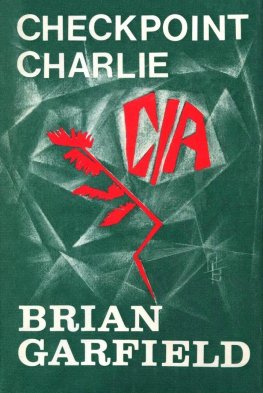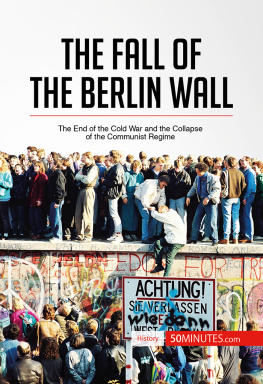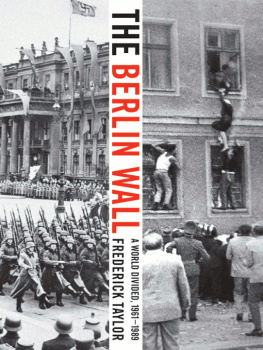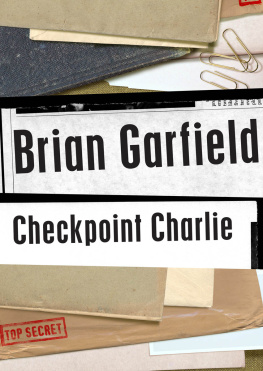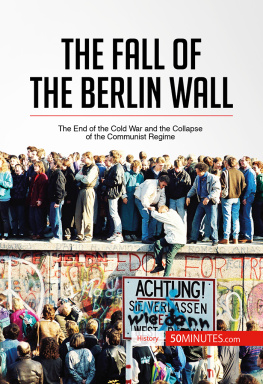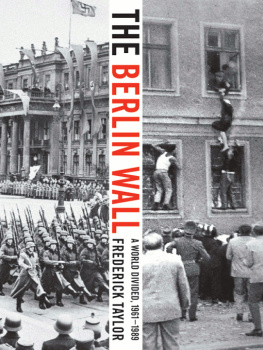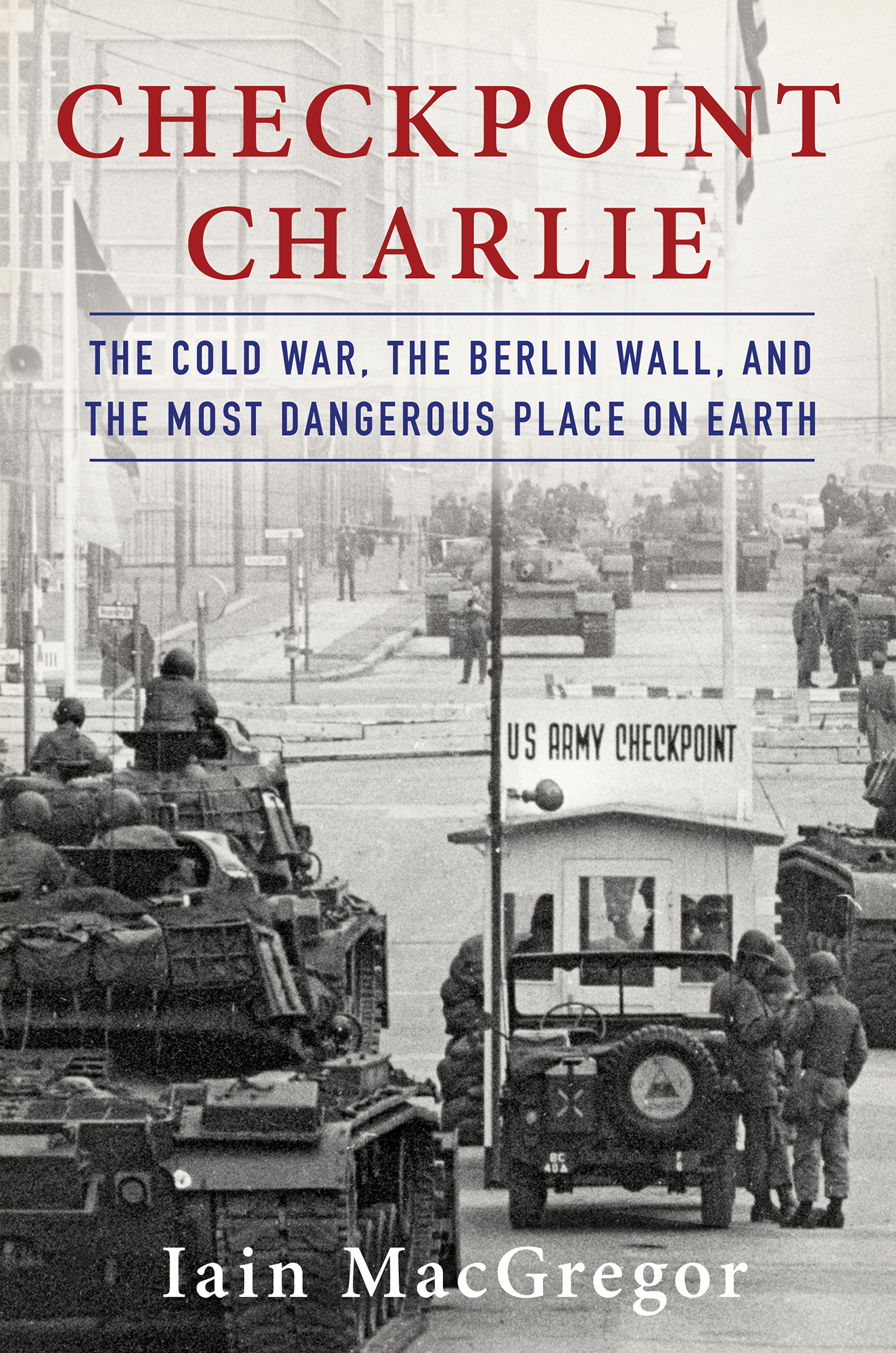
You are leaving the American Sector. Along with the nondescript wooden hut, there was only a sign announcing that one was actually about to enter East Berlinand for anyone lacking English comprehension, the same message was repeated for Soviet, French, and German travelers.

Scribner
An Imprint of Simon & Schuster, Inc.
1230 Avenue of the Americas
New York, NY 10020
www.SimonandSchuster.com
Copyright 2019 by Iain MacGregor
All rights reserved, including the right to reproduce this book or portions thereof in any form whatsoever. For information, address Scribner Subsidiary Rights Department, 1230 Avenue of the Americas, New York, NY 10020.
First Scribner hardcover edition November 2019
SCRIBNER and design are registered trademarks of The Gale Group, Inc., used under license by Simon & Schuster, Inc., the publisher of this work.
For information about special discounts for bulk purchases, please contact Simon & Schuster Special Sales at 1-866-506-1949 or .
The Simon & Schuster Speakers Bureau can bring authors to your live event. For more information or to book an event, contact the Simon & Schuster Speakers Bureau at 1-866-248-3049 or visit our website at www.simonspeakers.com.
Interior design by Kyle Kabel
Jacket design by Jaya Miceli
Jacket photograph by Picture Alliance /Getty Images
Library of Congress Cataloging-in-Publication Data is available.
ISBN 978-1-9821-0003-2
ISBN 978-1-9821-0005-6 (ebook)
To the memory of Gordon Cameron MacGregor and Ivor Robertson, Scottish soldiers of the Cold War
Erich Honecker, ruler of the GDR, watches the sun rise in the East. Why are you smiling? he asks. The sun replies, Because I am heading to the West!
East Berlin joke
Walls in peoples heads are sometimes more durable than walls made of concrete blocks.
Mayor of West Berlin Willy Brandt
PROLOGUE October 1961
I t would be the first time the young British officer had traveled to West Berlin. Lieutenant Robert Corbett of the Irish Guards looked out the door of the guards railcar that brought up the rear of the twenty-wagon military supply train. His afternoon had become stressful at the railway loading yard in Hanover as he anxiously watched final preparations being made by West German civilian crews, loading the wagons with essential supplies of fuel oil, ammunition, and foodstuffs, all heading for the British garrison now isolated in West Berlin, though only 177 kilometers (about a hundred miles) away. He knew there would be ample time wasted at the Inner German border crossing at Helmstedt, but he was confident they would still get the train through without a fuss. By October 1961 the East Germans and the Soviets had successfully split the city in two with what would become the Berlin Wall, and the Allies were anxious that the three border crossings into East Germany with access to Berlin should be maintained at all costs. My orders were very clear, Corbett recalled. Under no circumstances was I to permit the trains contents to be pilfered, or physically interfered with. Corbett had a small, handpicked reconnaissance platooneleven men and his platoon sergeant. With night drawing near, the British troops felt the first sharp bite of an autumn chill as the wind picked up. To keep warm, they quickly withdrew into the central section of the train where the guard stove was situated.
As the train pulled into Helmstedt to cross into the German Democratic Republic at Marienborn, where Checkpoint Alpha was situated, Corbett adjusted his eyes to the arc lights illuminating the scene. This major crossing point was a set of simple, flimsy huts that marked out the actual border between East and West Germany. The cheery Allied border control officers bade the British troops farewell as they quickly processed the train through their side of the border at Helmstedt. Any feeling of optimism for the journey ended abruptly within a hundred yards, as the train came to a sudden halt, the engine letting out a powerful jet of steam when the brakes were applied. Out of the gloom came at least a dozen East German Transport PoliceTraposto carry out the inspection of the train, check identification of any non-Allied personnel aboard, and search for stowaways. East German border guardsGrenztruppenarmed with submachine guns slung loosely across their shoulders maintained a watchful eye as they chatted and smoked cheap cigarettes. As he scanned the borders of the darkness, Corbett could hear dogs barking ferociously in the distance. The buggers are no doubt sniffing the air for any would-be escapees, he thought to himself. The border crossing was a shabby, dismal place lit up with the glaring arc lamps, which were placed high above guard towers crisscrossed with barbed wire. Corbett couldnt wait to leave and get going on to Berlin.
Within a few minutes three Soviet border guards joined the Trapos and came marching to the rear of the guards wagon in order to take the British officers transportation papers back to their commandants office on the station platform. The driver and train guard from Hanover would depart when the paperwork had been cleared, as East German personnel took the train on from here. For want of anything better to do, the rest of Corbetts platoon quickly disembarked to stretch their legs, have a smoke, and see if they could start a conversation with the Russian conscripts standing near the trains platform. Corbett had been warned that the Communists would stretch out the border checks, and that once in the GDR the train would have to deal with other delays, like the terrible state of the track, which brought speeds down to forty-three miles per hour. When he returned to the guards wagon, he discovered on his bunk a beautiful Russian leather belt, with a great big brass buckle decorated with the hammer and sickle. Next to it was a red packet of Russian cigarettes with a Soviet design. He turned suspiciously to his men.
Oh, sir, one of them said, we thought youd like it and so weve been doing a bit of swapping.
What did you swap it for? He frowned.
Well, a few half packs of cards! said another guardsman with a laugh.
Soldiers never change, Corbett thought. Theyre all the same. It broke the tension that had been building inside him, and he leaned out of the guards wagon window to watch the train crew starting to warm up the engine for travel. He studied the Russian border guards as they went about their business, and he admired their evident discipline. They had offered no opposition or signs of aggression. So long as the paperwork was in order, he had a right to travel to West Berlin, and they efficiently waved him and the train through into East German territory. The young officer had no idea that his problems were about to begin.
Once wed got through into East Germany, he later recalled, our new East German driver was determined that he would cause us as much difficulty as possible. He kept on stopping and starting all the time, and as a result we were up all night long. Going through Magdeburg in the early hours of the morning, we could see the great tank workshops there, the arc welding and engineering going on at that time of day, so this was obviously a twenty-four-hour operation.






